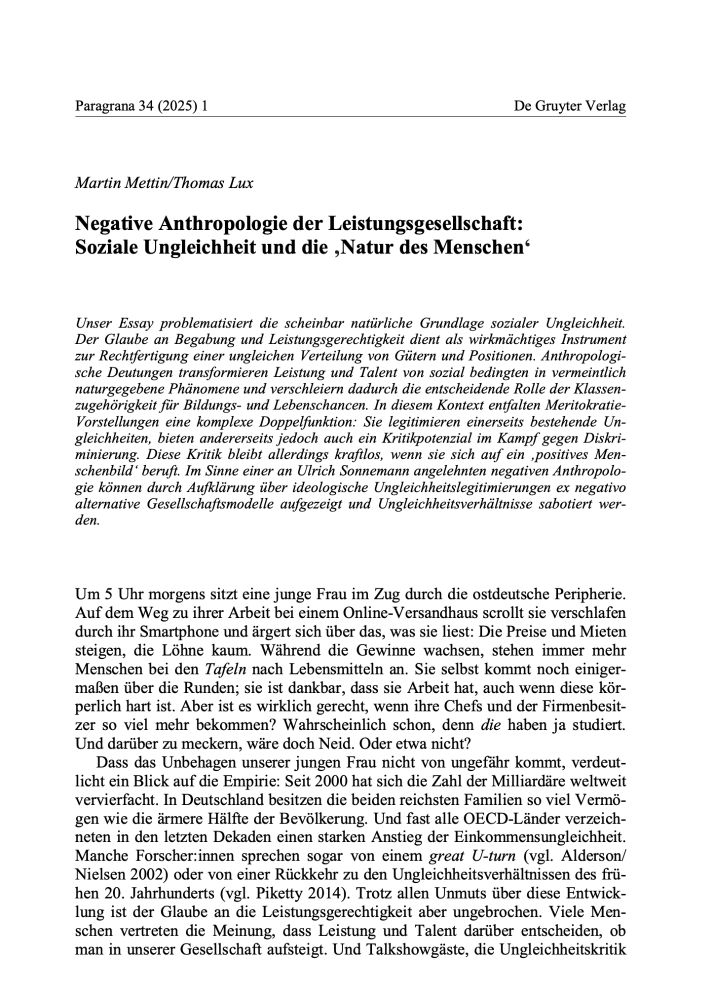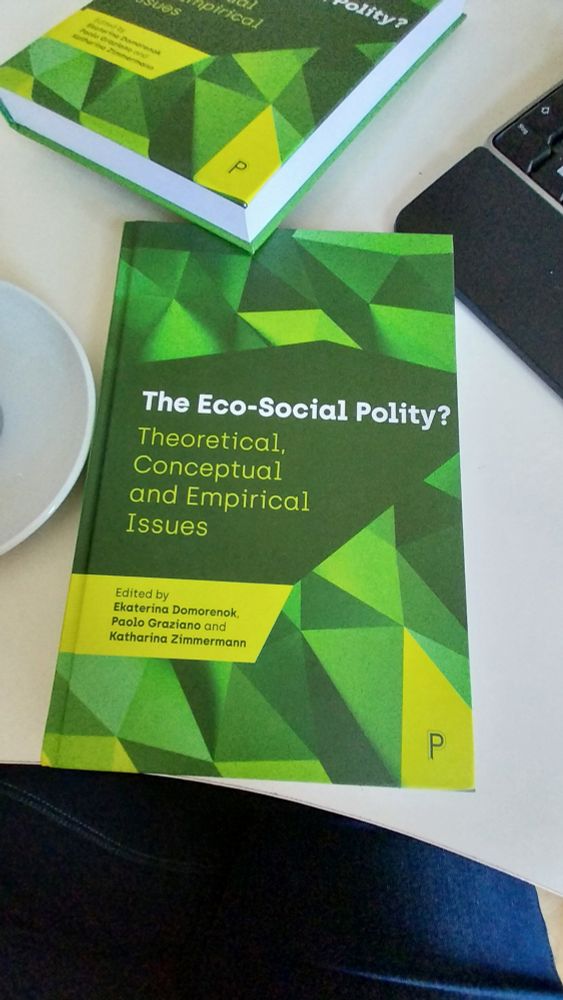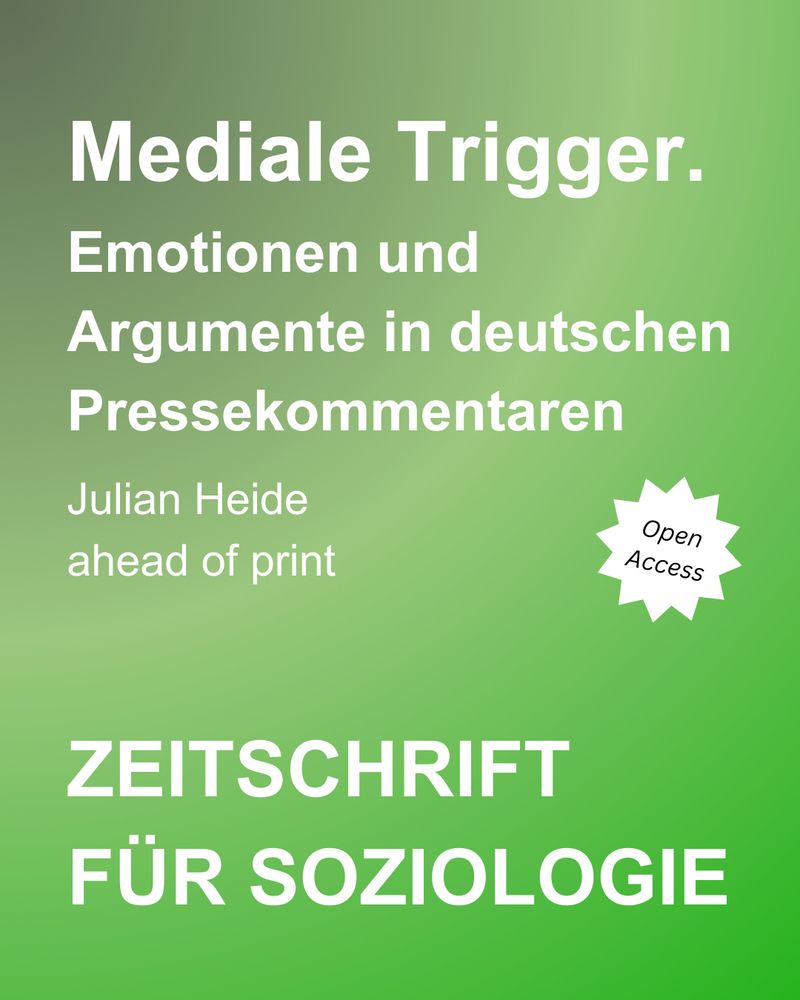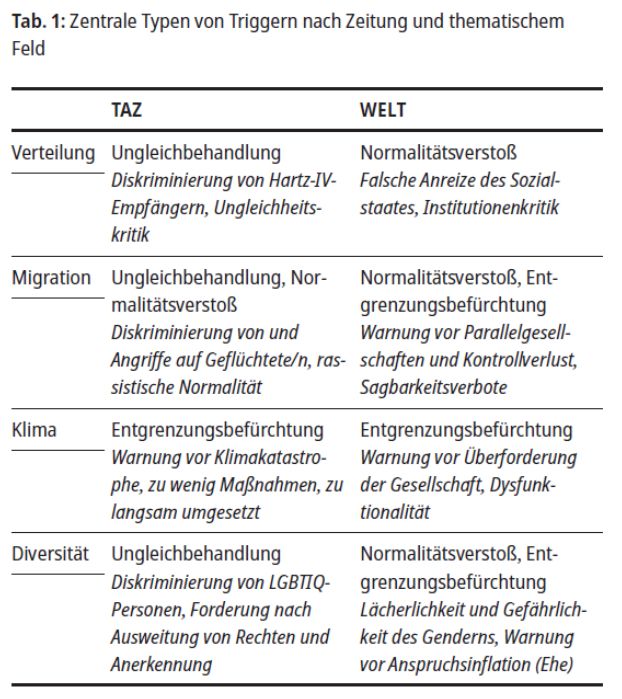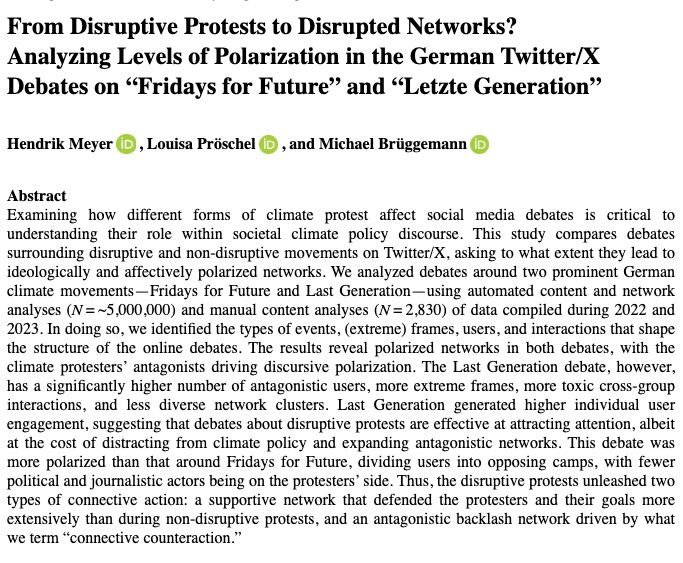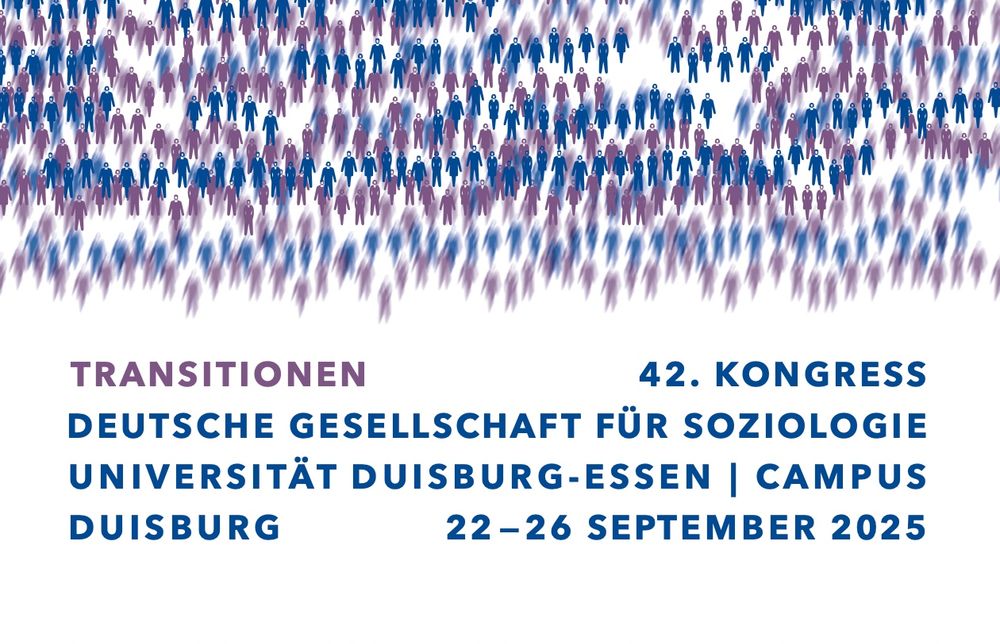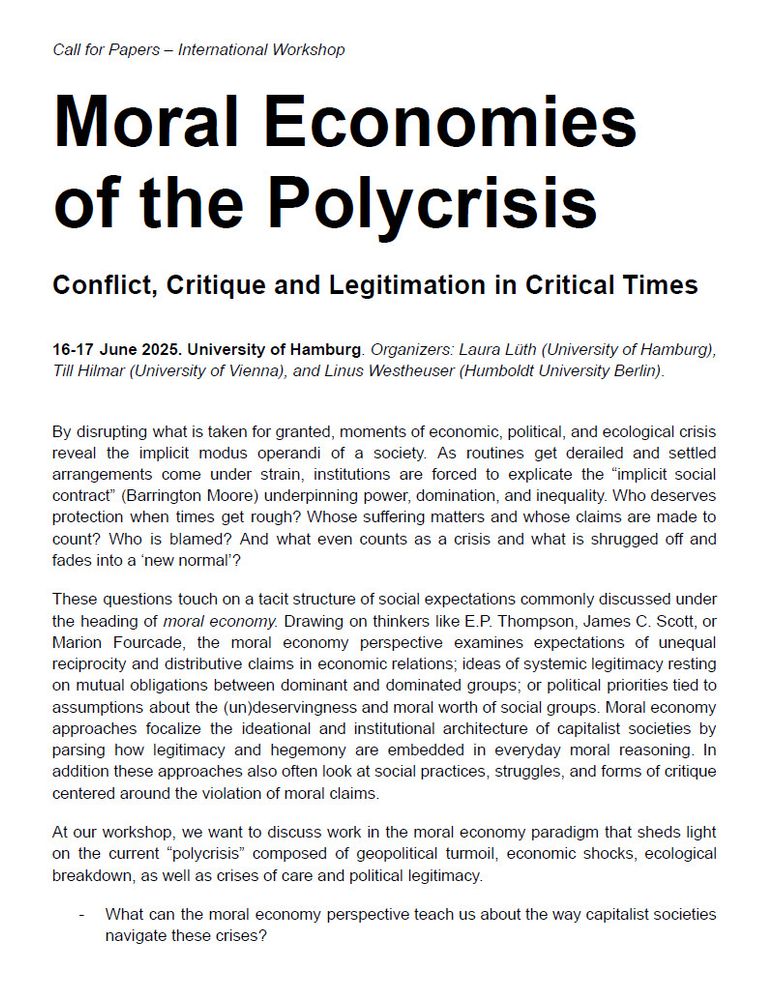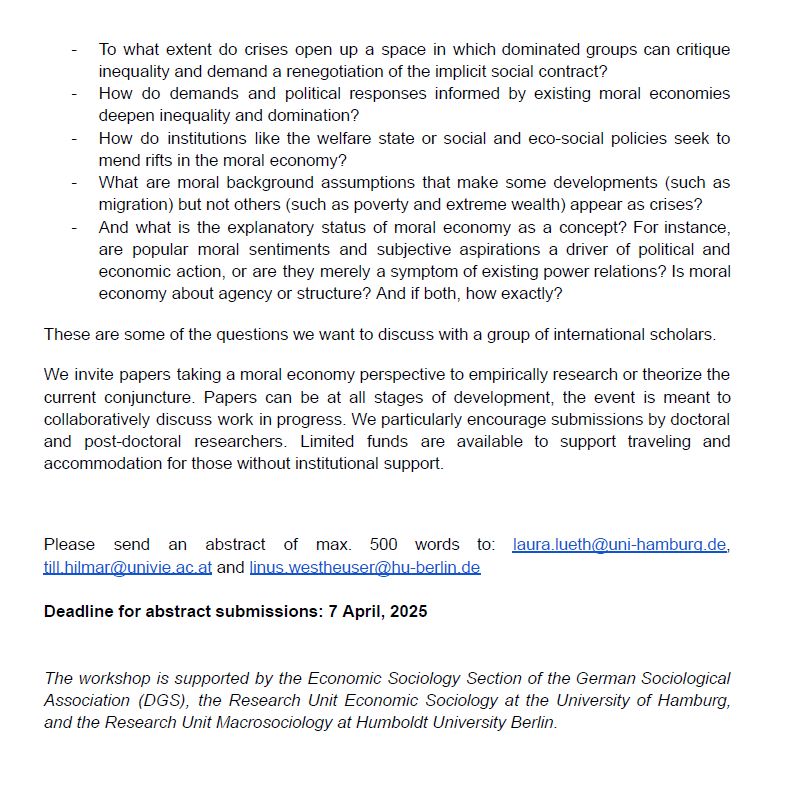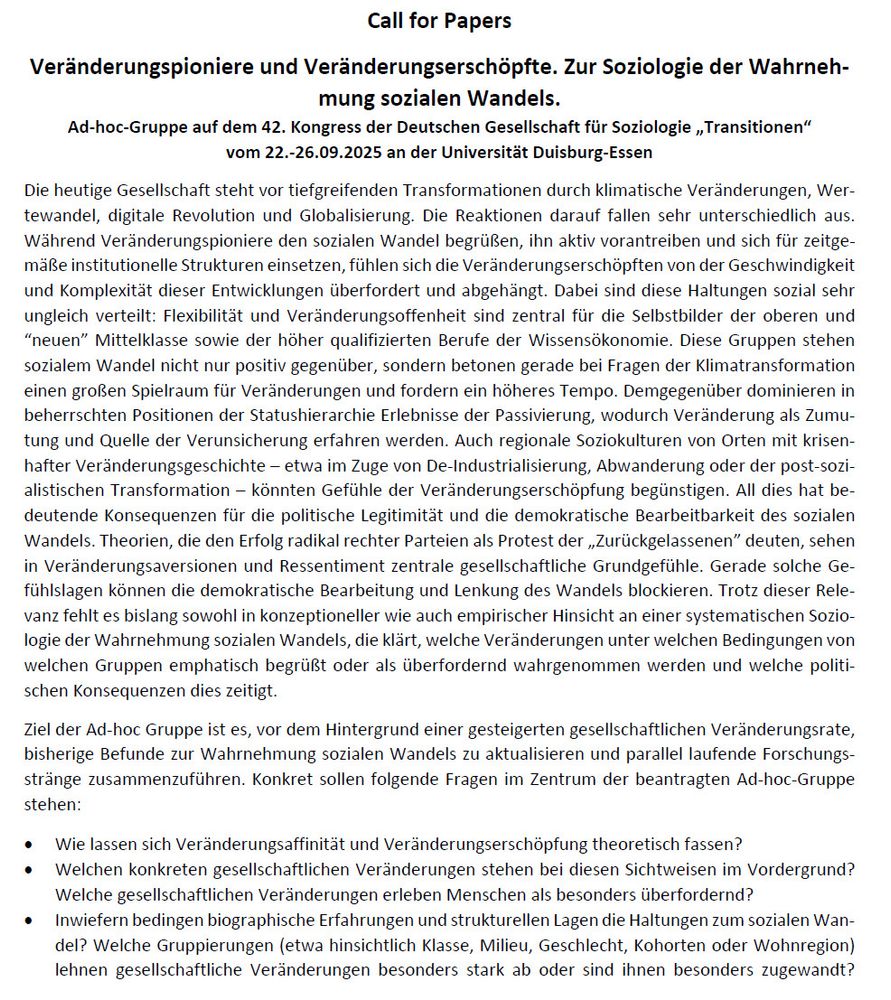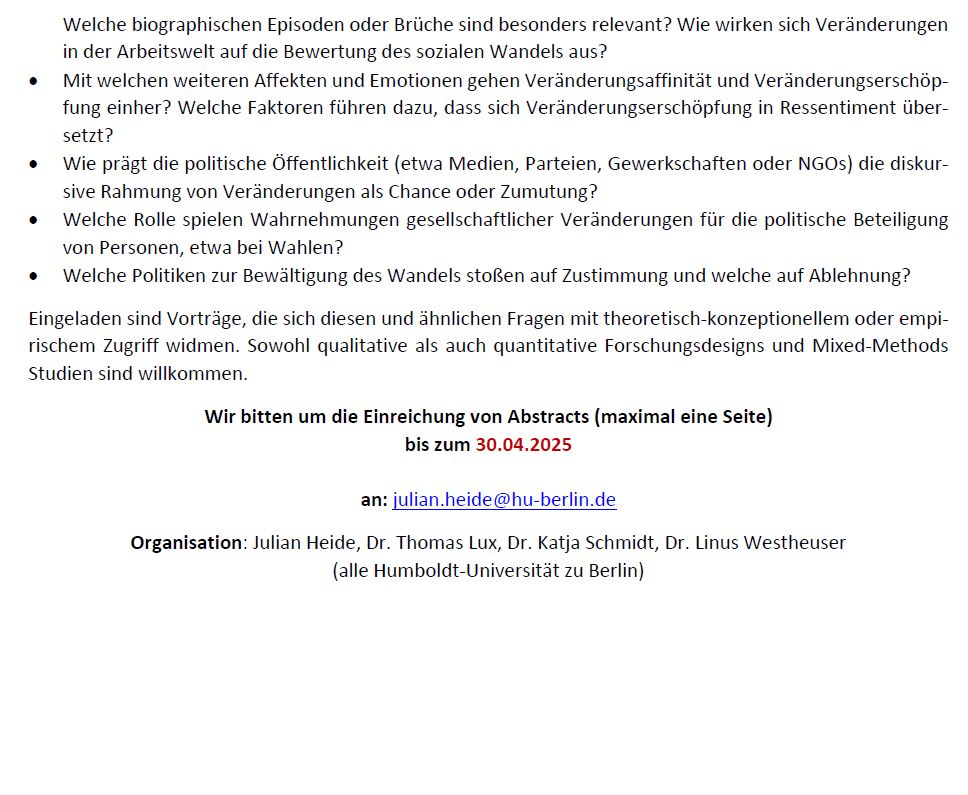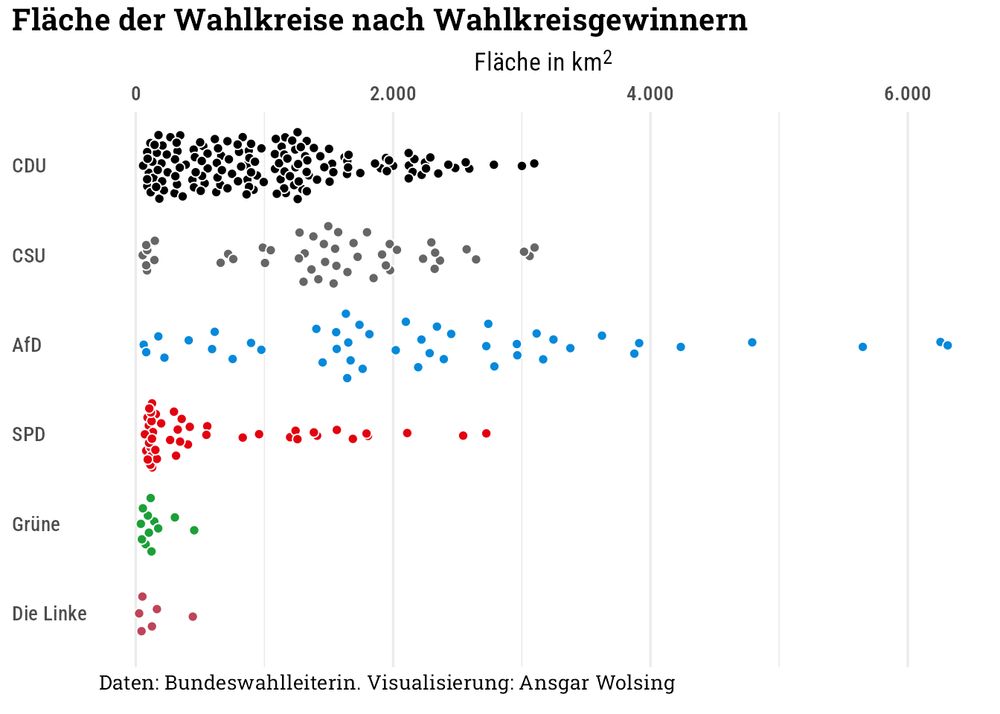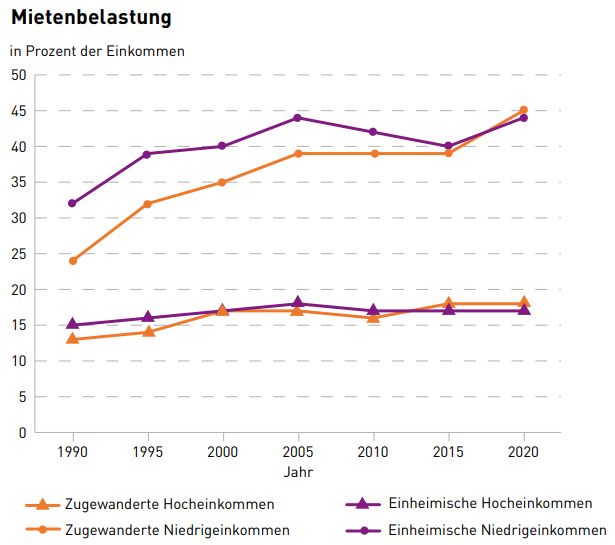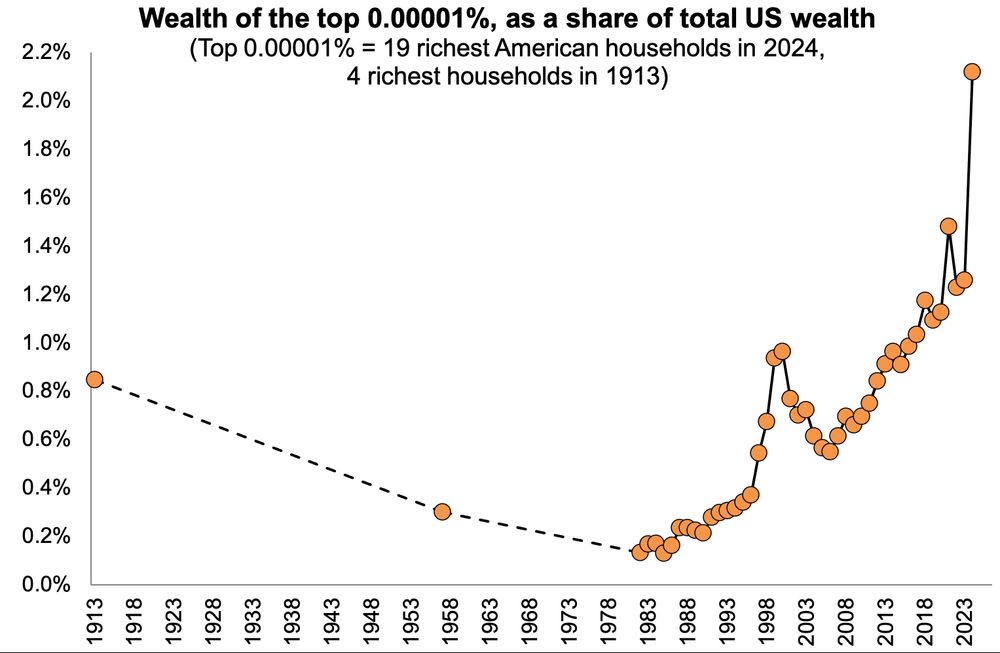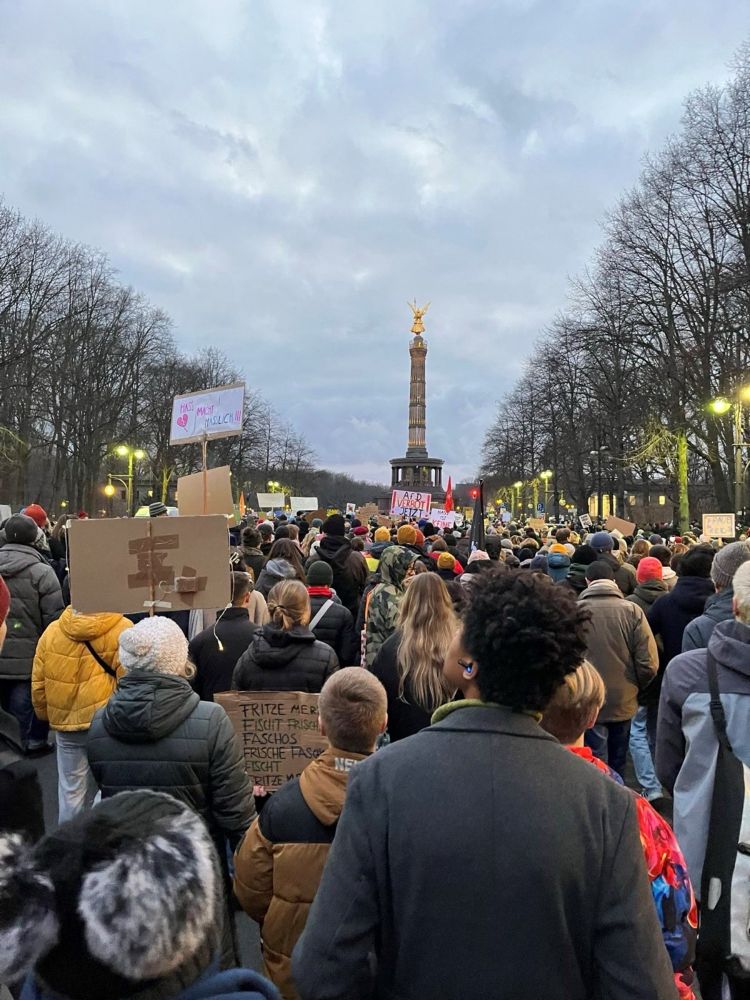Julian Heide
@julianheide.bsky.social
490 followers
920 following
14 posts
PhD candidate @humboldtuni.bsky.social
Interested in Climate Change | Media and Attitude Formation | Social Stratifcation
Posts
Media
Videos
Starter Packs
Pinned
Julian Heide
@julianheide.bsky.social
· May 22
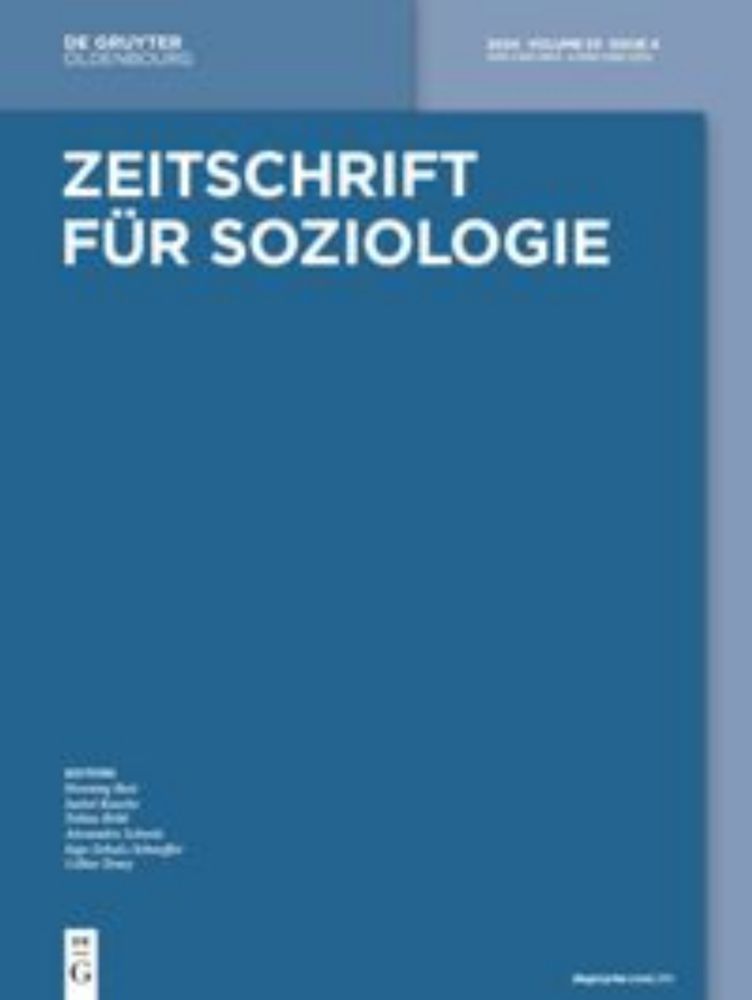
Mediale Trigger. Emotionen und Argumente in deutschen Pressekommentaren
Zusammenfassung Das Konzept der Triggerpunkte von Mau et al. (2023) beleuchtet, wo im öffentlichen Diskurs besonders konfrontative Haltungen auftauchen. Im Anschluss daran nimmt dieser Aufsatz Printme...
doi.org
Reposted by Julian Heide
Reposted by Julian Heide
Julian Heide
@julianheide.bsky.social
· Jul 8
Reposted by Julian Heide
Reposted by Julian Heide
Reposted by Julian Heide
Linus Westheuser
@lwestheuser.bsky.social
· May 24
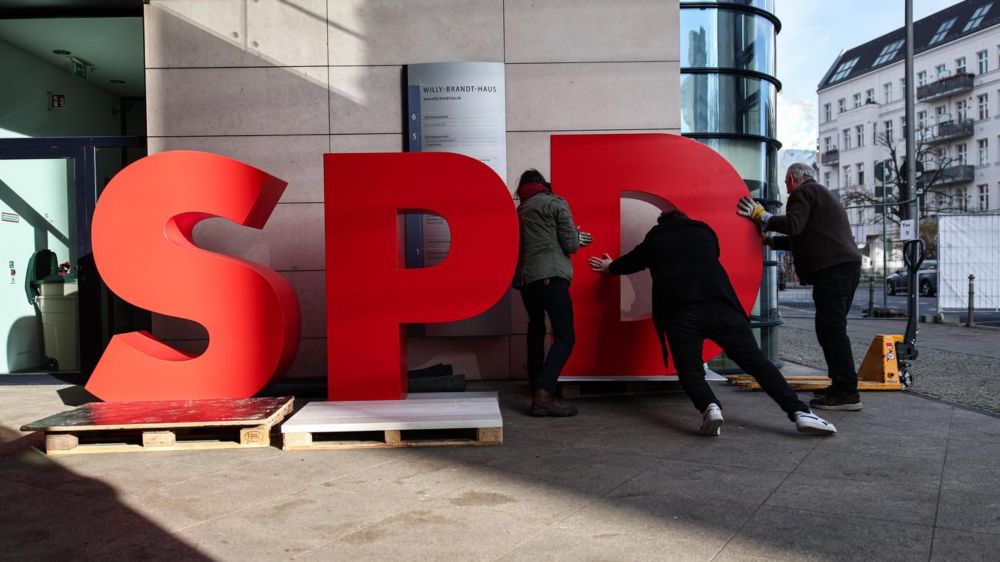
Linus Westheuser: "Die SPD muss bereit sein, sich mit den ökonomischen Eliten anzulegen"
Hat die SPD die Arbeiter verloren, weil sie zu viel über das Bürgergeld redet? Unsinn, findet der Soziologe Linus Westheuser. Die SPD brauche ein völlig anderes Konzept.
www.zeit.de
Reposted by Julian Heide
Julian Heide
@julianheide.bsky.social
· May 22
Julian Heide
@julianheide.bsky.social
· May 22
Julian Heide
@julianheide.bsky.social
· May 22

Mediale Trigger. Emotionen und Argumente in deutschen Pressekommentaren
Zusammenfassung Das Konzept der Triggerpunkte von Mau et al. (2023) beleuchtet, wo im öffentlichen Diskurs besonders konfrontative Haltungen auftauchen. Im Anschluss daran nimmt dieser Aufsatz Printme...
doi.org
Reposted by Julian Heide
Reposted by Julian Heide
Reposted by Julian Heide
Reposted by Julian Heide
Julian Heide
@julianheide.bsky.social
· Mar 29
Reposted by Julian Heide
Reposted by Julian Heide
Reposted by Julian Heide
Julian Heide
@julianheide.bsky.social
· Feb 21
Julian Heide
@julianheide.bsky.social
· Feb 21
Reposted by Julian Heide
Reposted by Julian Heide


